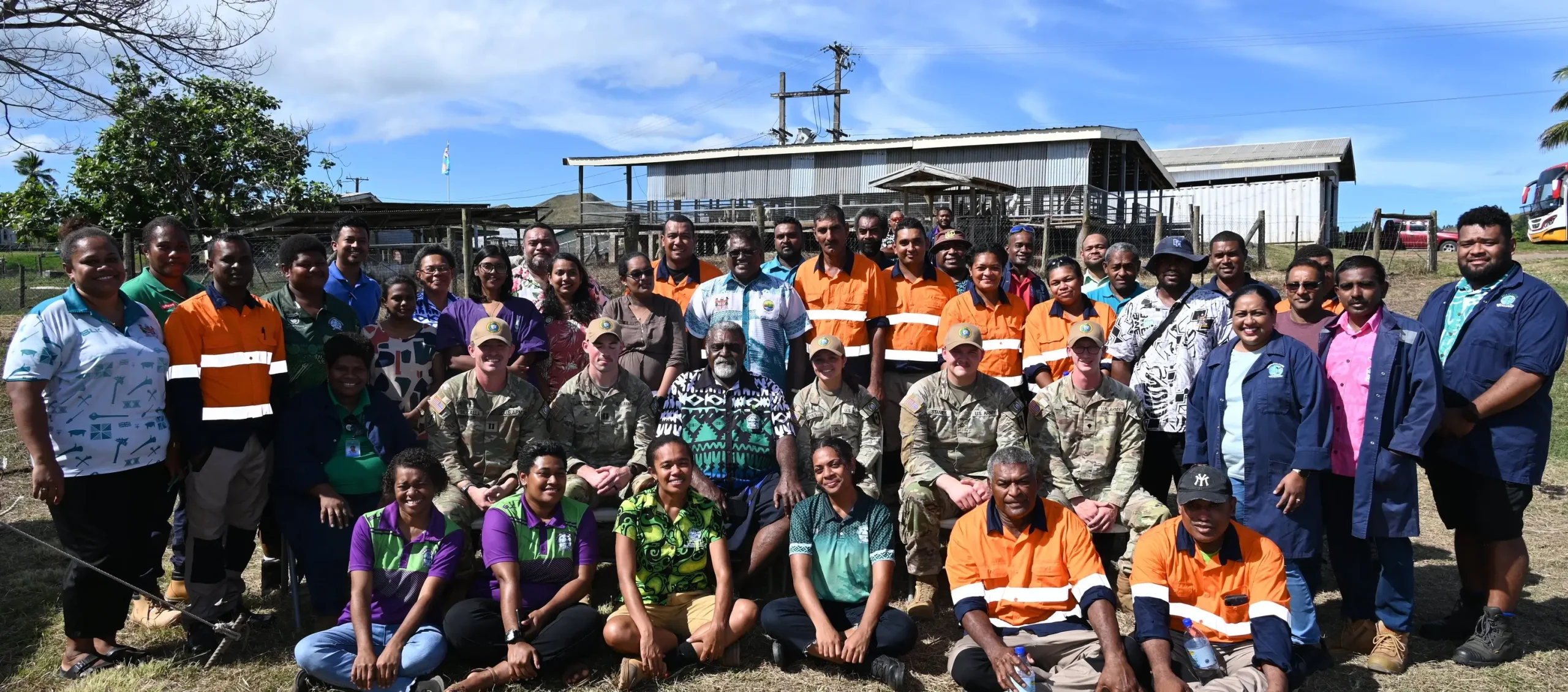
Farmers from Fiji’s Central and Western Divisions gathered at the Nawaicoba Research Station today for a hands-on training program focused on improving sheep and goat farming practices.
The field day, officially opened by Assistant Minister for Agriculture and Waterways, Tomasi Tunabuna, aimed to strengthen capacity in small ruminant husbandry and management; an important part of Fiji’s livestock sector.
“This initiative equips our farmers with the knowledge, tools, and support needed to succeed in sheep and goat farming,” Tunabuna said.
He noted the significance of small ruminants not just as a source of nutrition and income, but also in Fiji’s cultural and ceremonial life.
“Sheep and goats play an important role in weddings, kurbani, and funerals, showing how closely tied these animals are to our traditions and communities,” he added.
Tunabuna stressed the importance of reducing Fiji’s dependence on imported meat. In 2024, Fiji imported 8,642 metric tons of sheep meat and 378 metric tons of goat meat, valued at $82.6 million, while local production contributed around $7.5 million.
“This is about more than import substitution; it’s about sustaining traditions, creating local jobs, and building economic resilience,” he said.
While acknowledging challenges such as limited infrastructure, livestock attacks by stray dogs, and the need for better genetics and nutrition, Tunabuna highlighted the government’s investment of $2 million in the past three years toward fencing, sheds, breeding, feed inputs, and farmer training.
He also praised Nawaicoba and Batiri stations as key centers for livestock research and development.
Navua-based farmer Suresh Chandra, who attended the training, said the workshop gave him new skills to better manage his livestock.
“I’ve been raising sheep and goats for years, but I didn’t know alternatives when medicine ran out. Today I learned practical solutions, feeding strategies, and how to scale properly. I can apply this straight away,” he said.
The program covered breeding, disease prevention, and nutrition methods designed to improve productivity and farm profitability.
Tunabuna concluded by urging farmers to embrace innovation and collaboration to build a stronger livestock sector for Fiji.